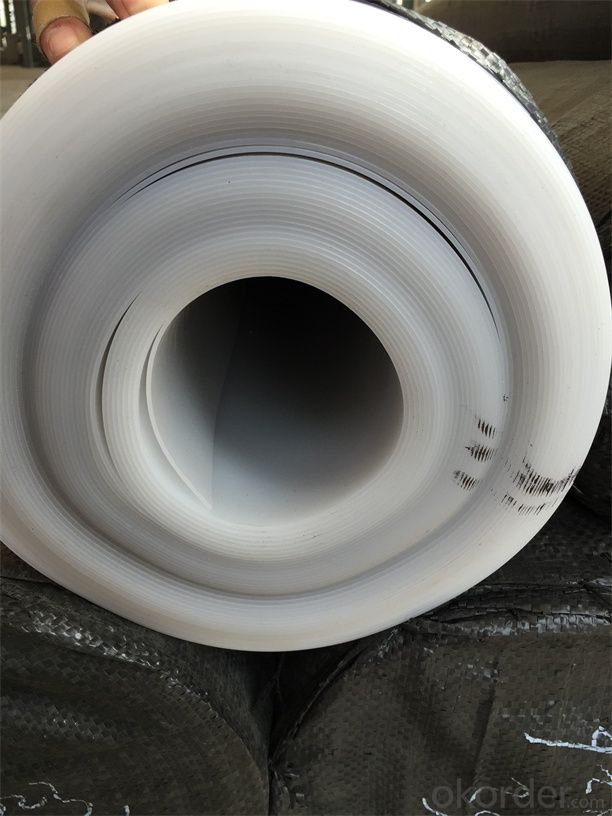- Understanding the Role of Geomembrane Liners in Waste Management
- Innovations in Geomembrane Liners for Water Management
- Geomembrane Liners: A Comprehensive Guide
- The Future of Geomembrane Liners in Civil Engineering
- Geomembrane Liners: Enhancing Landfill Stability
Manager:
WhatsApp:+86 177 0135 2670
Tel:+86 177 0135 2670
Email:marketing@okorder.com
Address:3rd Floor, No.2 Building, No.1 Sanlihe Road
The Advantages of HDPE Geomembranes in Agriculture
hdpe Geomembranes, also known as high-density polyethylene liners, have been a game-changer in the agricultural sector. These versatile materials offer a range of benefits that have revolutionized the way we approach farming and irrigation. Let's dive into the advantages of HDPE geomembranes in agriculture and explore how they contribute to a more sustainable and efficient farming practice.

1. Water Conservation
Water is a precious resource, and in agriculture, it's even more critical. HDPE geomembranes are designed to minimize water loss through evaporation and seepage. By lining ponds, reservoirs, and irrigation canals with these membranes, farmers can significantly reduce water wastage, ensuring that every drop is used for crop growth. This water conservation feature is particularly beneficial in arid regions where water scarcity is a significant concern.
2. Durability and Longevity
One of the standout features of HDPE geomembranes is their durability. Made from high-quality polyethylene, these liners are resistant to UV radiation, chemicals, and extreme temperatures. This means that they can withstand the harsh conditions often found in agricultural settings without degrading. The longevity of HDPE geomembranes reduces the need for frequent replacements, saving farmers time and money in the long run.
3. Chemical Resistance
Agricultural activities often involve the use of chemicals such as fertilizers and pesticides. HDPE geomembranes are non-toxic and have excellent chemical resistance, ensuring that they do not react with or degrade these substances. This property is crucial for maintaining the integrity of the water supply and protecting the environment from potential contamination.
4. Enhanced Crop Growth
The controlled environment created by HDPE geomembranes can lead to enhanced crop growth. By reducing water loss and providing a stable environment for root systems, these liners promote healthier plant development. This can result in higher yields and better-quality produce, which is great news for both farmers and consumers.
5. Erosion Control
Erosion is a common problem in agriculture, leading to the loss of valuable topsoil. HDPE geomembranes can be used to line canal banks and other areas prone to erosion, effectively preventing soil loss and maintaining the structural integrity of the land. This not only preserves agricultural land but also contributes to environmental conservation efforts.
6. Easy Installation and Maintenance
Installing HDPE geomembranes is a relatively simple process that requires minimal disruption to existing agricultural operations. Once in place, these liners are low-maintenance, requiring only periodic inspections to ensure they remain in good condition. This ease of installation and maintenance is a significant advantage for busy farmers who need to keep their operations running smoothly.
7. Cost-Effectiveness
While the initial investment in HDPE geomembranes may seem steep, the long-term savings in terms of water conservation, reduced chemical use, and extended liner life make them a cost-effective solution. Over time, the cost savings can be substantial, providing a strong return on investment for farmers who choose to implement this technology.
8. Environmentally Friendly
HDPE geomembranes are not only beneficial for agriculture but also for the environment. Their use in water conservation and chemical resistance helps to reduce the overall environmental footprint of farming operations. By choosing HDPE geomembranes, farmers are taking a step towards more sustainable agricultural practices.
9. Versatility in Applications
The versatility of HDPE geomembranes extends beyond just water conservation and erosion control. They can also be used in various agricultural applications such as landfill liners, aquaculture ponds, and even in the construction of greenhouses. This adaptability makes them a valuable asset in any farming operation.
10. Improved Aesthetics
Lastly, let's not forget the visual appeal of HDPE geomembranes. These liners can enhance the appearance of agricultural landscapes, creating a clean and organized look that reflects a well-maintained and efficient farming operation.
In conclusion, HDPE geomembranes offer a multitude of advantages that make them an indispensable tool in modern agriculture. From water conservation to environmental sustainability, these liners are paving the way for a more efficient and eco-friendly farming future.
- Previous:HDPE Geomembranes: A Comprehensive Guide for Construction Professionals
- Next:Innovative Uses of HDPE Geomembrane in Waste Management






